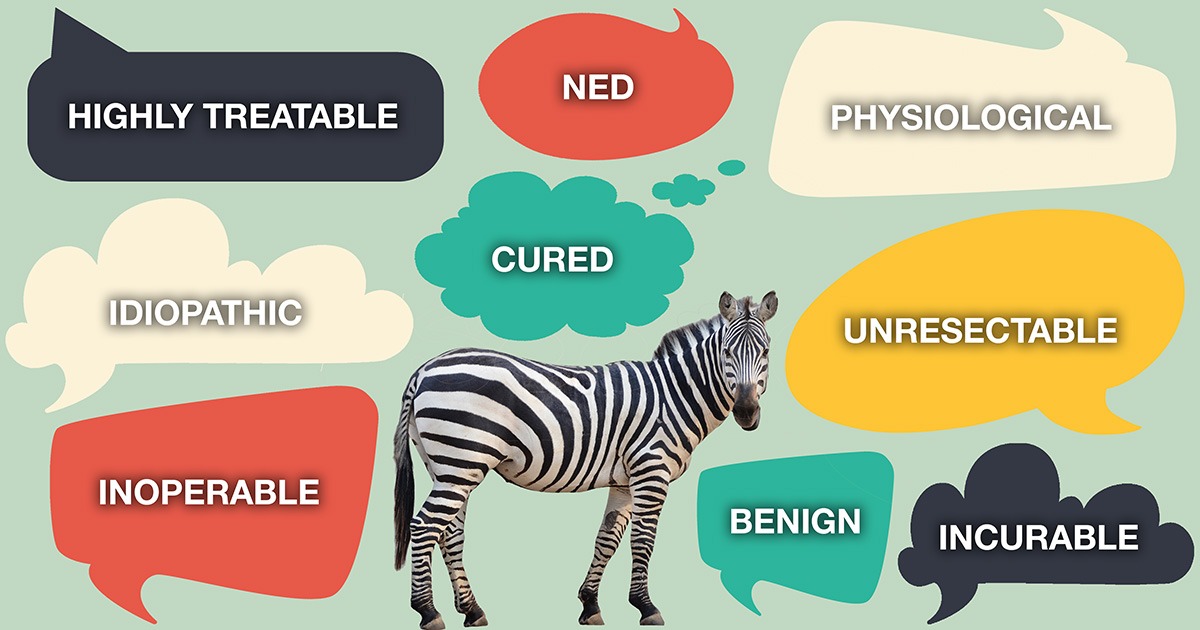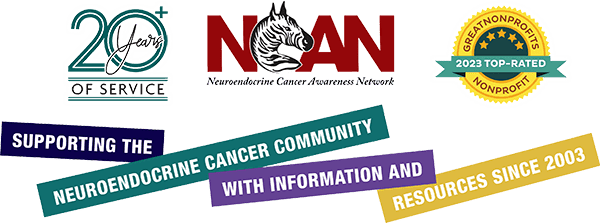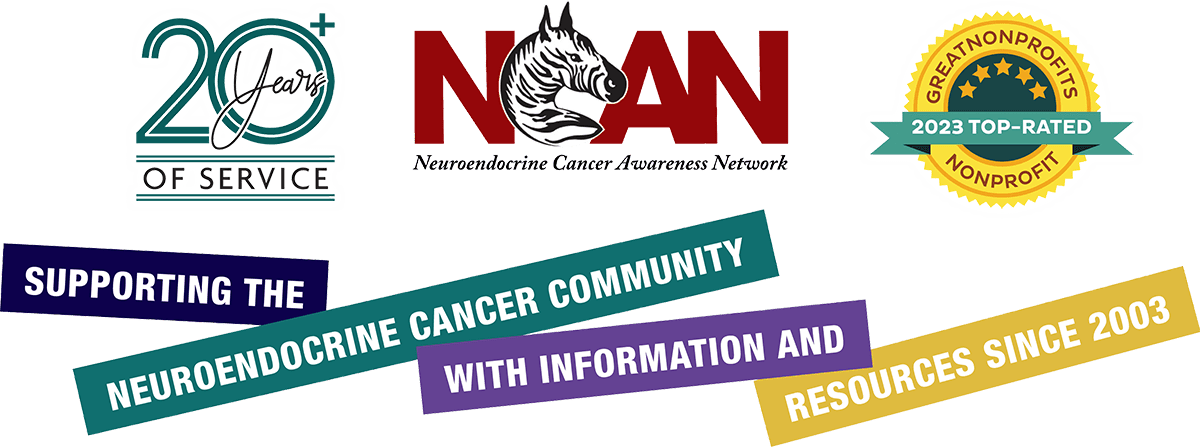October 1, 2023
By Anne Dabbs,
NCAN TN Support Group Leader, NET Patient

True Story:
A young oncologist was baffled by his patient’s repeated carefree and lighthearted moods as they discussed her less than successful treatments and continued progression month after month. Finally, it became clear that the patient had failed to understand the medical definition of progression. His patient erroneously thought she was getting better.
Oxford Dictionary defines progression as the process of moving toward a more advanced stage. In music, that can mean a passage from one chord to the next. In mathematics, it can mean developing skill sets. In oncology, progression does not have the same desirable connotations.
Just as an oncology patient is reeling from the shock of a cancer diagnosis, they quickly learn that a whole new language is suddenly essential. Additionally, Neuroendocrine Cancer patients have a subset of terminology unique to this disease. Oftentimes there are subtle differences in word choices used by medical professionals and those used by patients living with NETs.
Since 2016, I have been honing my own personal understanding of medical lingo and would like to share a few observations here. I have found that sometimes what I thought I heard is not exactly what the physician said. Too often, I failed to ask for clarity. Too often, the physician has failed to recognize the multiple connotations a word can have, especially for a novice in the oncology world.
Communication + Conversation + Clarification = Understanding.
Don’t hesitate to ask for clarification when discussing your disease and potential treatments. Here are a few helpful phrases you can use to clarify a conversation with your physicians:
“I’m not sure I understand.”
“Can you explain this differently for me, please?”
“Let me repeat what I think I understand you are telling me.”
Below are several medical terms that can have multiple definitions. Confirm what your doctor’s definition is.
INOPERABLE:
1) Surgery will not cure your disease, or
2) Surgery is too risky a procedure for patient’s overall health, or
3) Surgery is not currently an option by this surgeon.
Question to ask:
Is this terminal in the short term?
Is this treatable?
INCURABLE:
1) No known 100% successful treatments for this disease, or
2) We can’t make you well again, or
3) We can’t totally remove the disease, permanently.
Questions to ask:
Is this terminal?
Is this treatable?
How can my quality of life be improved?
BENIGN:
1) Non-cancerous matter, mass, chemical makeup, or
2) No suspected cancer cells now but could become cancerous.
CURED:
1) Tumor completely removed with apparent clear margins, or
2) Tumor and metastatic disease removed with no reoccurrence, or
3) Following 10+ years of surveillance with no reoccurrence.
NED:
No evidence of disease, right now.
Question to ask:
Does this mean cured to your doctor?
Two words whose use on medical reports often cause confusion or substitute concern for fear for patients are found quite frequently in NETs vocabulary:
IDIOPATHIC:
The medical definition according to Oxford languages is “relating to or denoting any disease or condition which arises spontaneously or for which the cause is unknown.”
This might be the most frustrating term appearing in a Neuroendocrine diagnostic journey. So many of us have experienced idiopathic symptoms attributed to other conditions to only learn post diagnoses that the symptom is a classic NET syndrome symptom.
PHYSIOLOGICAL:
“Characteristic of/or appropriate to an organism’s healthy or normal functioning”. Merriam-Webster’s medical definition reinforces quite clearly the fact that seeing “physiological” on a scan report [ can likely be] nothing to worry about.
Politely requesting clarification during a conversation with your physicians should not be an angst inducing event. Both the patient and the professional will benefit when the goal of arriving at a clear, accurate understanding of the speaker’s words is met. It is also true that the patient holds the responsibility for their side of the conversation by using concise and accurate terms to describe their symptoms or experiences. But that’s a conversation for us for another day!
To help build your NETs vocabulary, we encourage you to utilize the NCAN Resource Room and Glossary. And as always, we are HERE to help.
Find out more about how YOU can help the NET Community.
Disclaimer: NCAN blog posts are the opinions of its writers and are not intended as a replacement for medical advice. Please consult your Health Care Providers for individual concerns.


Comment(1)-

Amanda DeSantis says
October 14, 2023 at 12:18 pmThis helps with communication skills with your family members & physician’s so I hope it was a good idea ???? to put music ???????????????? Desantisar.robbie on Instagram for Cancer institute of FL USA ????